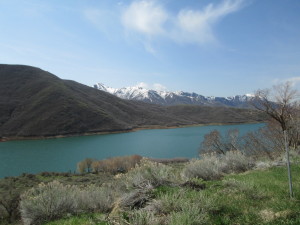[Prospect Park, Brooklyn, NY, summer of 2013*]
“Either your children are the centerpiece of your life or they’re not. And all the rest is commentary.”
I’d copied that quote so many years ago I can’t quite remember which New Yorker writer, quoting his wife, wrote it, nor know any more the name of his wife. But I do know this: For forty-four years, ever since the birth of my first daughter, that statement is me.
And yet it took a tiny, peppermint-striped, baby’s sunhat jammed into the chainlink fence to really, piercingly understand how true that is!
I’d been walking around Fresh Pond last evening, a reservoir for the city of Cambridge, when I’d spotted that sunhat. Although a popular and well-used wildlife preserve and nature walk, the actual pond is carefully cordoned off. Hence that chainlink fence.
I was there for the beauty and the solace of trees and sunflowered meadows and redwinged blackbirds and late-afternoon sunlight on water, having just gotten word that my grown daughter, who’d had been in a horrible bike accident on Saturday, had just gotten out of surgery. And that it went well.
So much to process as I walked: Lingering, still-heart-racing shock. (She lives and bikes in Connecticut; I’d been in Louisville, Kentucky when I’d heard the news.) Overwhelming gratitude that her sisters and her loving husband have been and are still so hands-on taking exquisite care of her. Relief the surgery, which took hours, went well. Anxiety. Worry. Sadness. A roiling, boiling stew.
And then, suddenly, I saw it, that sweet little hat, tucked into the fence because some baby had lost it and someone else had picked it up and carefully displayed it in the hope it would be found.
And motherlove just flooded me, primal, fundamental, incredibly powerful, central to who I am; the centerpiece of my life, indeed.
* This photo references a well-known children’s book re motherlove. Do you know which one?












